‘Democratising the right to laziness’: the rise of grocery apps
Groceries on-demand apps have sprung up in the last year, with delivery in as little as ten minutes
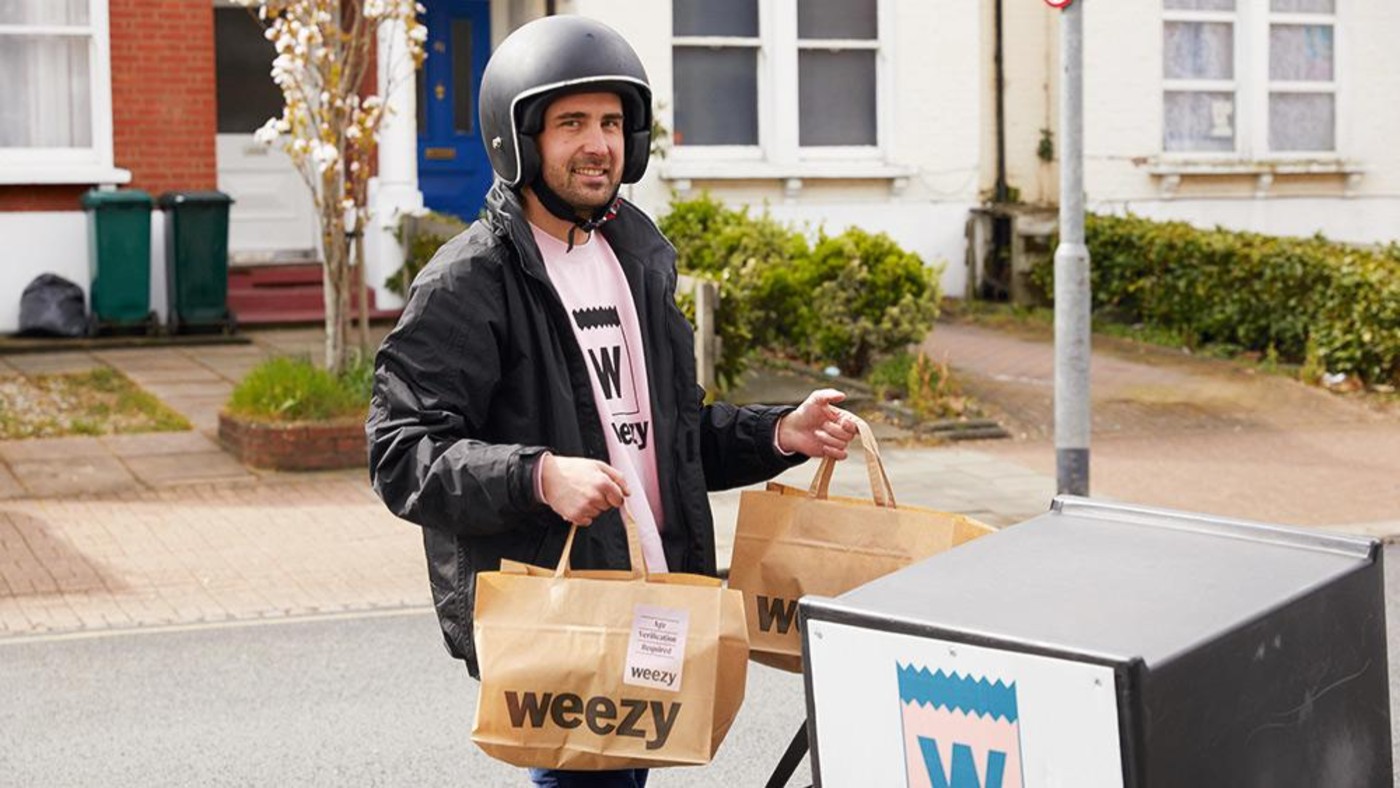
A free daily email with the biggest news stories of the day – and the best features from TheWeek.com
You are now subscribed
Your newsletter sign-up was successful
Companies that deliver groceries on-demand in as little as ten minutes are springing up all over the UK, and receiving millions in investment. But what might we lose by never popping out for milk again, asks Harry Wallop.
One Friday afternoon in May, Glenn Cobane, 40, who lives with his wife and two cats in Salford, did some grocery shopping: a loaf of bread, bananas, an avocado, cat food, chocolate brownies and some cans of beer. Rather than going to a nearby corner shop or walking a mile to the large Tesco Extra, he ordered from a new app called Weezy. He placed the order at 2.19pm. “I just sent the order, typed an email and then it arrived,” he says. It is 2.27pm and I’m standing on his doorstep beside the courier.
Why not pop to Costcutter, which I can see from his garden? “The app has a better selection. It has cat food and, more importantly, beer,” says Cobane, laughing, pulling out cans of Marble, a local brew you can’t get in the corner shop. “I plan to continue working from home, so I’ll be reliant on these services – it’s just a lot easier.” Cobane works in construction and orders online from Tesco or Sainsbury’s once a fortnight, but frequently runs out of fresh food or beer. “I haven’t been inside an actual supermarket since October. I’m hoping to not go back for as long as possible.” Because of Covid? “Because it’s boring, and it’s time-consuming, and, you know, I’ve been doing it for 25 years.” He shrugs. “I am embracing the future.”
The Week
Escape your echo chamber. Get the facts behind the news, plus analysis from multiple perspectives.

Sign up for The Week's Free Newsletters
From our morning news briefing to a weekly Good News Newsletter, get the best of The Week delivered directly to your inbox.
From our morning news briefing to a weekly Good News Newsletter, get the best of The Week delivered directly to your inbox.
At least ten different on-demand grocery companies have emerged over the last year, with names that sound like Snow White’s other dwarves: Weezy, Jiffy, Dija, Zapp, Fancy, Getir and Gorillas. All have bold, bright branding; all hire young couriers riding e-bikes, bicycles or scooters; all promise to deliver “in minutes”. They rent mini-warehouses, mostly in London, but also Brighton, Bristol, Cambridge, Birmingham, Leeds, Liverpool and Manchester. Established supermarkets are racing to capture the same market: both Sainsbury’s and Tesco are trialling rapid services. Despite existing for only a few months, some of the new companies have raised eye-popping sums from venture capital firms; one estimate puts investment at £9.8bn since the start of the pandemic.
One investor, Ophelia Brown at Blossom Capital, says: “We think Dija [a brand she has backed] could be worth £100bn.” (Tesco – founded in 1919 and with 4,500 stores around the world – is worth £17bn. Dija started delivering groceries in March and has 24 stores.) She is not a lone fantasist – many believe the grocery industry is about to experience a revolution; one as transformative as when the Co-operative Society opened a self-service store in London in 1948, allowing shoppers to pick their own items off the shelf, rather than wait for a grocer behind a counter.
The idea is already popular in other countries. Getir, a Turkish company now in London, has “millions of people placing orders every month” in Turkish cities since its launch in 2015, according to Turancan Salur, Getir UK’s general manager. He says: “We are democratising the right to laziness.” Partly fuelled by the pandemic, millions more now shop for food online. In February 2020, only £7.40 of every £100 spent on groceries in the UK was bought online, according to Kantar, an industry research company. By February this year, it was up to £15.40. A generation of change squeezed into a year.
“There has been significant growth from offline to online over the last one-and-a-half years,” says Kristof Van Beveren, 38, a Belgian engineer who founded Weezy with former Oxford University Boat Race winner Alec Dent, 31. “Now there is a second move from online to on-demand.” Van Beveren speaks quickly as he and Dent show me around one of Weezy’s London warehouses. Both wear pink sweatshirts branded with the company logo. “If you take European groceries, it’s a multitrillion dollar business,” Van Beveren says. Isn’t it fanciful to think he could get a significant chunk of that market? “Not at all,” he says. “Groceries are universal: everyone has to eat. Your typical tech start-up that pops up in London goes to a very small audience: early adopters, millennials. Our customers are all over, and range from 15 to 85 years old.”
A free daily email with the biggest news stories of the day – and the best features from TheWeek.com
Many users point out that a weekly shop requires planning. The app doesn’t. Indeed, most of our food shopping isn’t planned. Kantar estimates that 63% of all our grocery shopping is what it calls a “basket shop” – a pack of biscuits at lunchtime, or a top-up at the corner shop for milk and loo roll – rather than a big weekly trip or planned online shopping. Could these start-ups get all of that 63%? It’s highly unlikely, but, as Matt Botham, an analyst at Kantar, says, “They are betting on the lazy pound.” Dent, however, says it’s “a misconception” that the on-demand grocery business is just about selling beer and crisps to drunk people at 10pm. “In fact, 50% of what we sell is fresh.” The next step is offering recipe suggestions for people to cook from scratch.
One rival goes further in his ambition. “If I was to look back 100 years, if you wanted water, most of the households in our country needed to take the bucket and go to the local water source,” says Vladimir Kholyaznikov, who was born in Belarus and is in London to set up Jiffy. “Now, you have pipes in your flat that give you water on demand. Grocery delivery is going to duplicate that.” For now, his strategy is to target young adults with discounted ice cream using micro-influencers on Instagram. I visited his warehouse in a railway arch in Waterloo. Jiffy’s neighbour is Getir. Around the back of the arches are Dija and Zapp. “The more competitors at the beginning, the better,” says Kholyaznikov. “It educates the customer that there is this alternative.”
Currently, Jiffy has six UK stores. Other than a desk, the Waterloo one is a large chiller cabinet, a freezer and shelves stocking about 900 different items. The range will soon expand to 1,500 – the same as a small Lidl. A large supermarket has 30,000. There are eight workers in the Jiffy store: four riders wearing acid-blue tops, two pickers, a shift supervisor and the manager. When an order arrives, a horn noise is sounded from the supervisor’s computer and the order is sent to an app on the picker’s phone, telling them the shelf location of each item. They dash around with a trolley, putting the items in a paper bag, before handing it over to the e-bike riders.
Although Jiffy’s website promises “groceries in 15 minutes”, when you place an order you get an estimated delivery time, which can be more than 20 minutes if you live far from the store. Josephine Henry, 19, a student and mother of eight-month-old Jaden, lives near Victoria station. She has ordered three tubs of Ben & Jerry’s, costing £8.22. Amused at being caught buying nothing more than ice cream, she says Jiffy and Getir are often better value than a supermarket. For now, Jiffy is offering free delivery. Weezy charges £2.95, Zapp £1.99, but both offer free delivery on orders over £30. Product prices tend to be mostly in line with Tesco Express or Sainsbury’s Local, which are 8-9% more expensive than a standard Tesco or Sainsbury’s. “Early in the morning, if I don’t have the energy to go to the shop or if Jaden is being fussy and I have no one to go to the shop for me, I get it on the app. It’s just easier.”
There are many potential customers for whom popping to the local shops is difficult. Steve O’Hear, 45, has recently joined Zapp as its head of strategy. He has muscular dystrophy and uses a wheelchair. “For me, when you are disabled, doing things for yourself is super-empowering.” He was a big internet shopper already, but “a service that can fill the gaps between planned shopping is potentially a gamechanger”. “The purple pound is huge,” he adds, referring to disabled people’s consumer spending.
But could these apps cause a problem for shopkeepers on the struggling British high street? It’s true that over the past year local stores did well. But 20 years ago, there were more than 55,000 convenience shops in the UK; now there are fewer than 47,000. “It is a worry,” says Rav Garcha, 39, who runs five corner shops in the Midlands, started by his father. He is not against internet shopping – he started to do online deliveries from his shops during the pandemic, signing up to a platform called Appy Shop that many local shops joined. But Garcha is nervous about competition from dark stores. “At the moment they are warehouses, but what’s to stop them operating out of a garage, or a front room, or a shed? That’s what I am really worried about. It’s all just so faceless. Being a local business matters.”
Babita Sharma is author of The Corner Shop, part history of the convenience shop in Britain and part memoir about growing up in one in Reading. “Corner shops have a place in people’s hearts because there is a recognisable face behind the counter every day when you go in to buy your pint of milk.” She is not pessimistic, however. “New entrants into the market might be a threat to them initially, but it’s unlikely to be the final nail in the coffin for corner shops because they have proven to be so resilient in the past.”
In Salford, most of the riders are young. Sean Holehouse is 19, but has already worked for Amazon, a Kellogg’s factory and UberEats, which delivers restaurant food. “UberEats – you can only work when people are hungry: morning, dinner, tea. Here I’m paid by the hour.” He enjoys the cycling, he says, but mostly he likes the pay. He estimates he earned £150 a week working for UberEats, where he rode a pedal bike; now he gets to use Weezy’s e-bikes and is paid £10 an hour. “I got paid £650 for last week. The week before I got £480.” All the on-demand brands have decided to hire pickers and riders as proper employees, rather than gig-economy workers, mostly paying between £10 and £11 an hour. But how long can the companies afford to pay a premium above the supermarket industry, where entry-level jobs are at the minimum wage: £6.56 for a 19-year-old, £8.91 for those over the age of 23?
While investors keep piling in, it’s not a given that these services will make a profit. Supermarkets generate £3 or £4 of profit for every £100 they sell, and have struggled to make online deliveries profitable due to the cost of the picking, delivering, and refrigerated vans. But analysts say, as with most tech start-ups, profit is not these apps’ immediate goal: “Build big, get a lot of customers, then focus on turning a profit a few years down the line,” says Thomas Brereton at GlobalData. Dark stores are cheaper to rent than high-street premises, and on-demand customers seem to spend more per shop than they would in a convenience store. The strategy is: higher turnover per customer, lower costs per square foot.
Supermarkets are fully aware of the threat. Sainsbury’s started Chop Chop, which delivers food by bicycle within an hour for a £4.99 fee, in 2017. A few weeks ago, Tesco announced its own trial in Wolverhampton: Tesco Whoosh, with a hefty delivery charge of £5 on orders over £15, £7 on smaller ones. Most, including Waitrose, Aldi, Co-op and Morrisons, have signed up with Deliveroo, paying it an undisclosed cut of every order.
Last month I tried out the apps available in my neighbourhood in London and found most formidably slick. Dija and Weezy arrived within 11 minutes. I am impressed enough that when my children complain about going up the road to get the next day’s breakfast, and some chocolate as a reward, I tell them we’ll get it from an app. I order on Getir, which warns me it is peak Friday evening and it could take 20 minutes. It takes 52. Waiting on my street in frustration, I meet a neighbour: Greg. By chance, he has ordered beer from Getir – we are waiting for the same rider. I ask why he hadn’t walked to our corner shop, run by Raj Patel, the closest we have to a community leader. “I didn’t feel like leaving the house – it’s been a long week,” Greg laughs. “I do worry that having this level of convenience isn’t good for us,” he says. “Is it programming our brains to become really lazy?” Possibly. But that laziness could fuel multibillion-pound fortunes for those who end up winners in this race. If the fortunes are funded by supermarket shoppers switching some of their spending, few will complain. But if it puts independent corner shops out of business, that’s a different matter. Next time the kids or I want chocolate, I think we’ll be wandering down the road for a catch-up with Raj.
A longer version of this article first appeared in The Guardian. © 2021 Guardian News & Media Limited
-
 Switzerland could vote to cap its population
Switzerland could vote to cap its populationUnder the Radar Swiss People’s Party proposes referendum on radical anti-immigration measure to limit residents to 10 million
-
 Political cartoons for February 15
Political cartoons for February 15Cartoons Sunday's political cartoons include political ventriloquism, Europe in the middle, and more
-
 The broken water companies failing England and Wales
The broken water companies failing England and WalesExplainer With rising bills, deteriorating river health and a lack of investment, regulators face an uphill battle to stabilise the industry
-
 Labubu: the 'creepy' dolls sparking brawls in the shops
Labubu: the 'creepy' dolls sparking brawls in the shopsIn the Spotlight Craze for the pint-sized soft toys has reached fever pitch among devotees
-
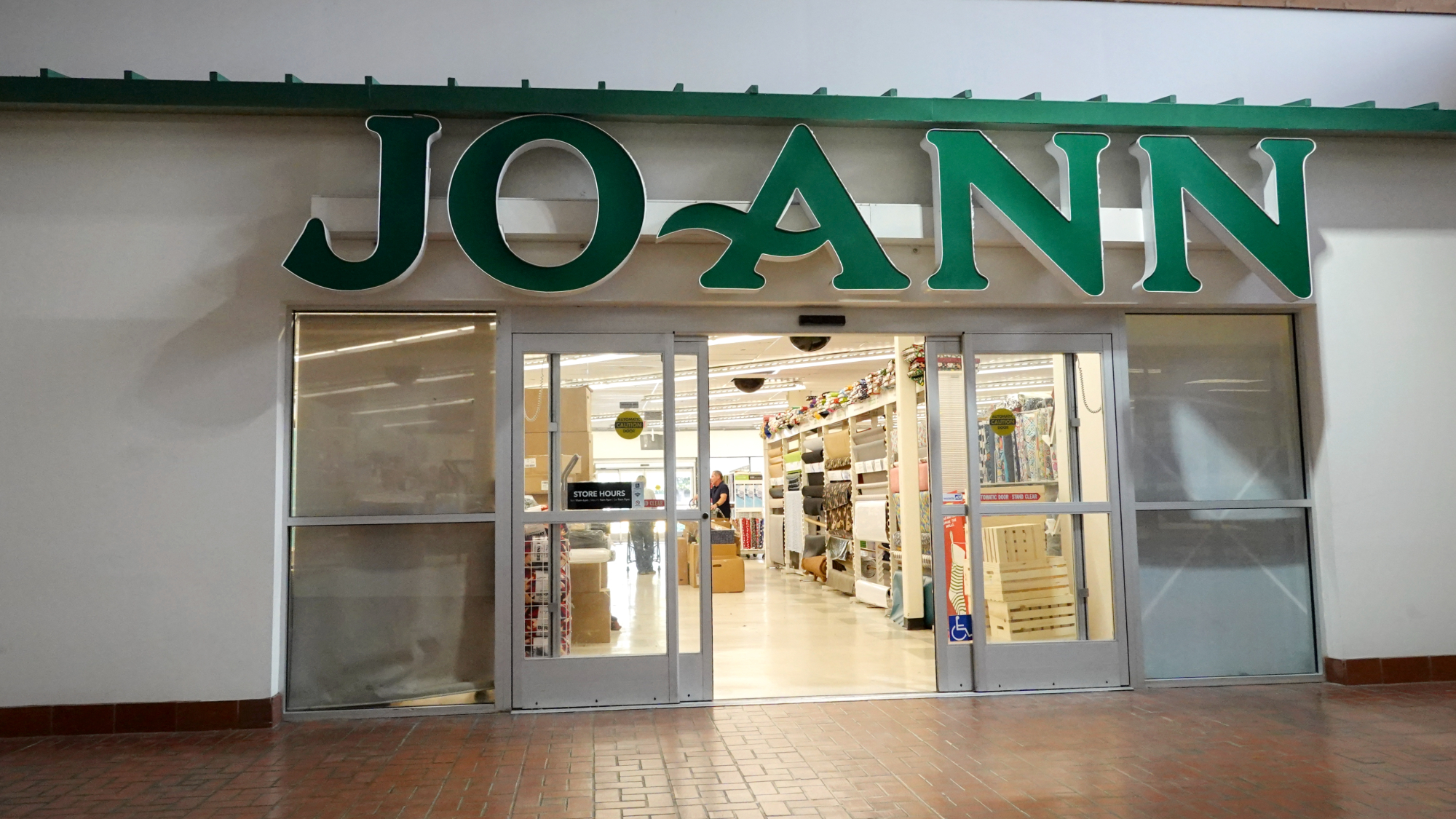 Crafting emporium Joann is going out of business
Crafting emporium Joann is going out of businessSpeed Read The 82-year-old fabric and crafts store will be closing all 800 of its stores
-
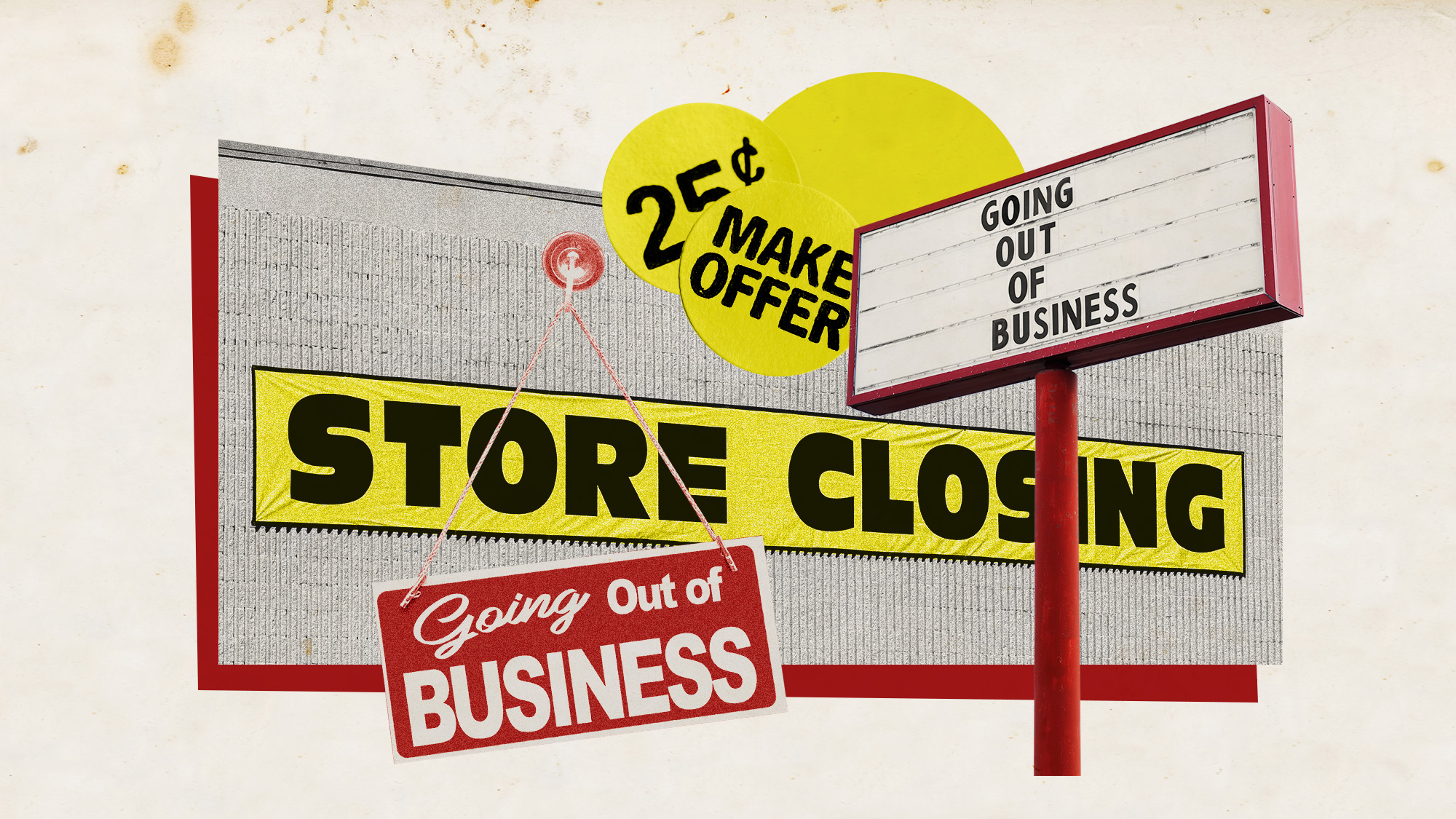 Store closings could accelerate throughout 2025
Store closings could accelerate throughout 2025Under the Radar Major brands like Macy's and Walgreens are continuing to shutter stores
-
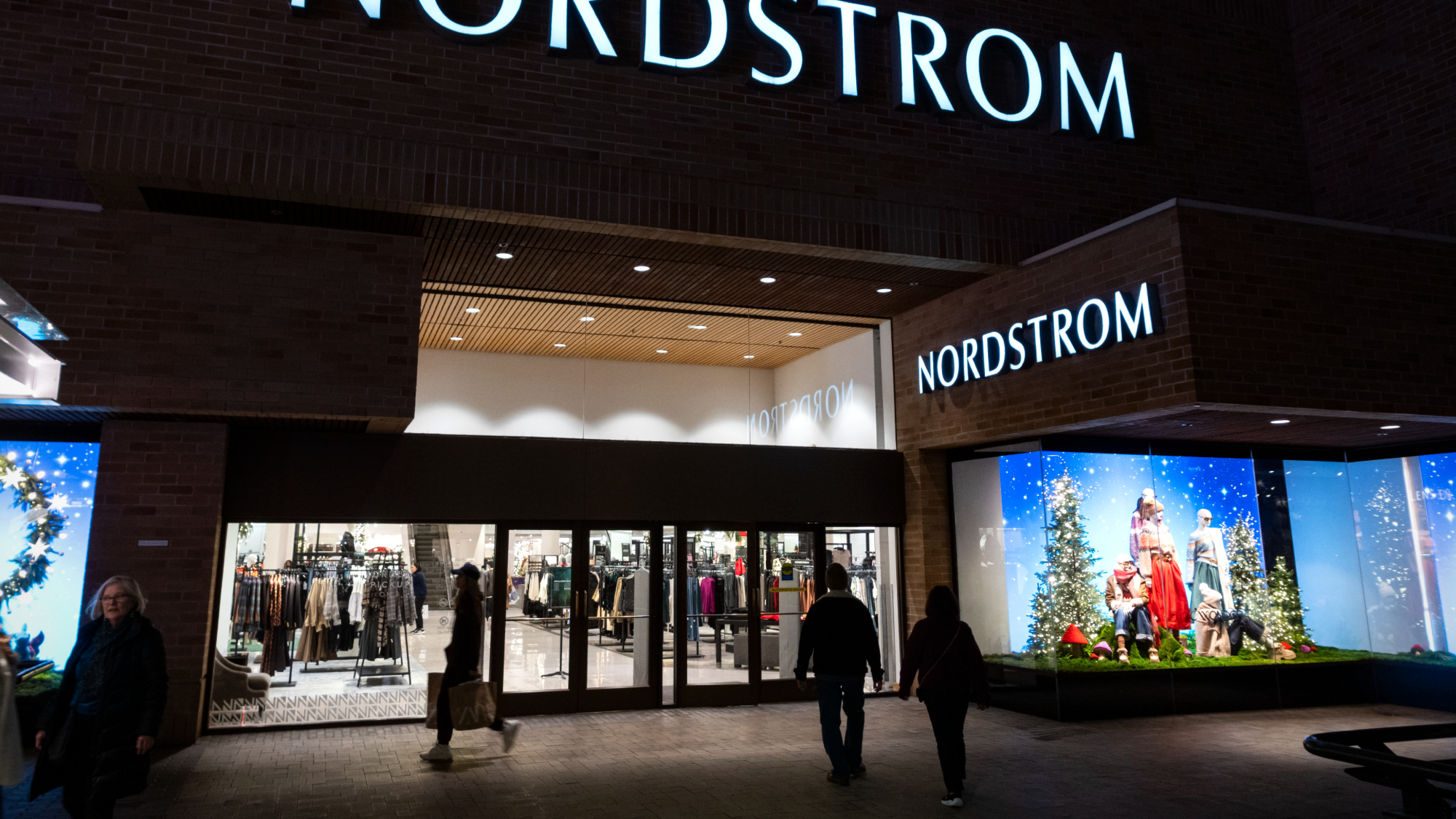 Nordstrom family, investor to take retail chain private
Nordstrom family, investor to take retail chain privateSpeed Read The business will be acquired by members of the family and El Puerto de Liverpool, a Mexican real estate company
-
 Giant TVs are becoming the next big retail commodity
Giant TVs are becoming the next big retail commodityUnder the Radar Some manufacturers are introducing TVs over 8 feet long
-
 The rise and fall of Tupperware
The rise and fall of TupperwareUnder The Radar The byword for food storage has filed for bankruptcy – was it a victim of its own success?
-
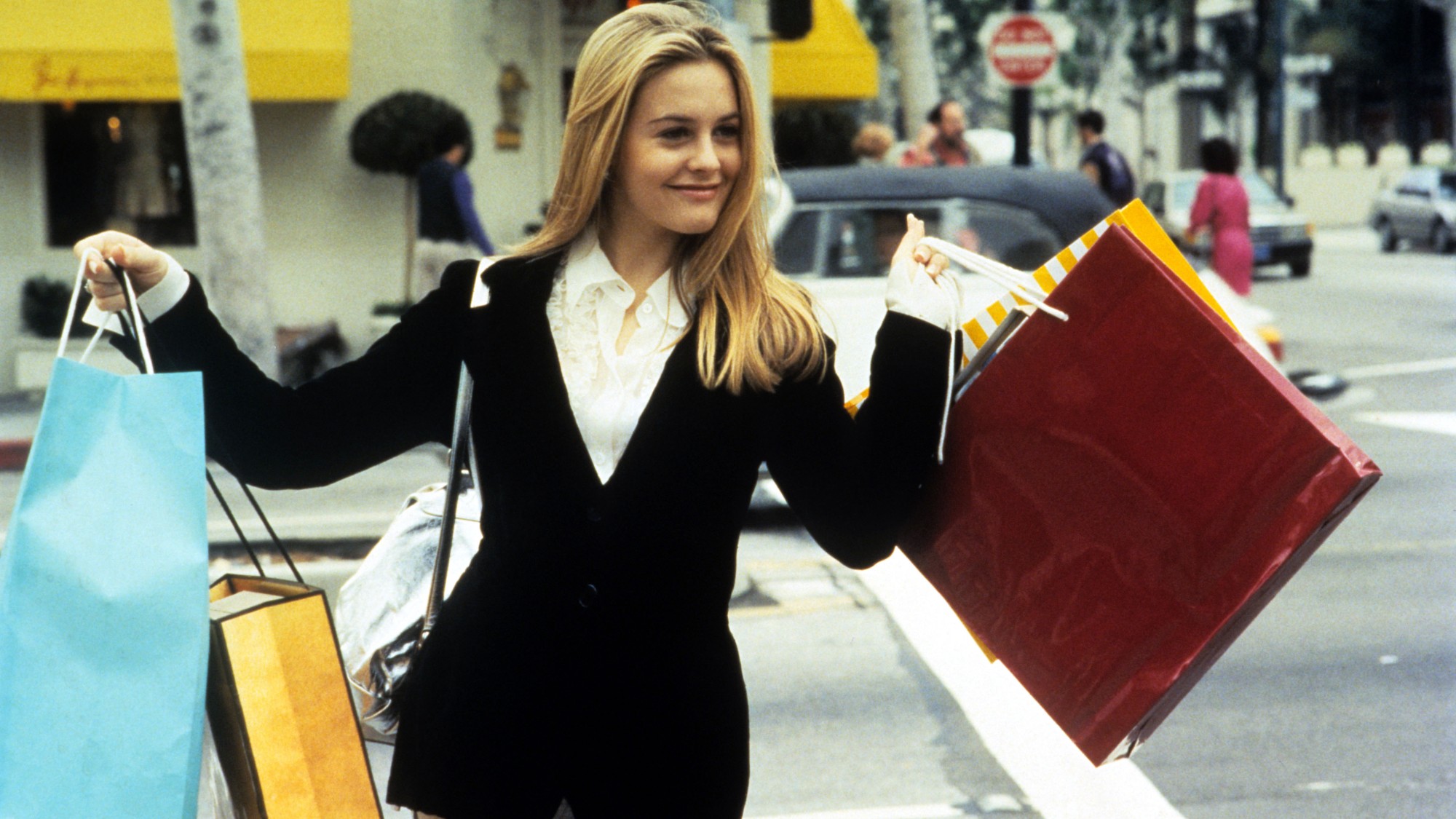 Britain's new retail returns nightmare
Britain's new retail returns nightmareIn the Spotlight Gen Z influencers and a 'poopy diaper' have shown up fault-lines in the system
-
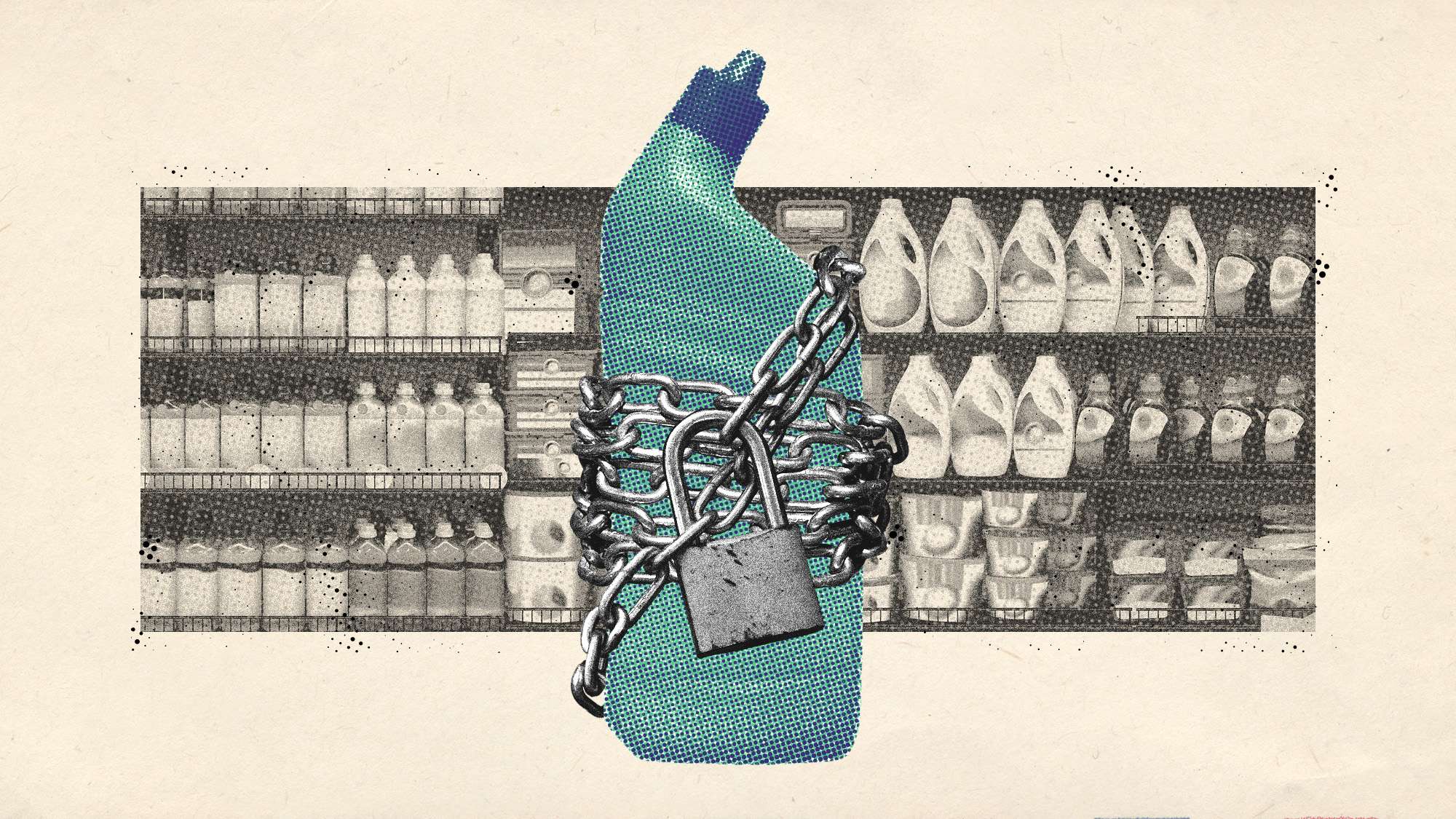 The inconvenience store: Why are shops locking up even more merchandise?
The inconvenience store: Why are shops locking up even more merchandise?Under the Radar You may have noticed a surge in items stowed behind security glass